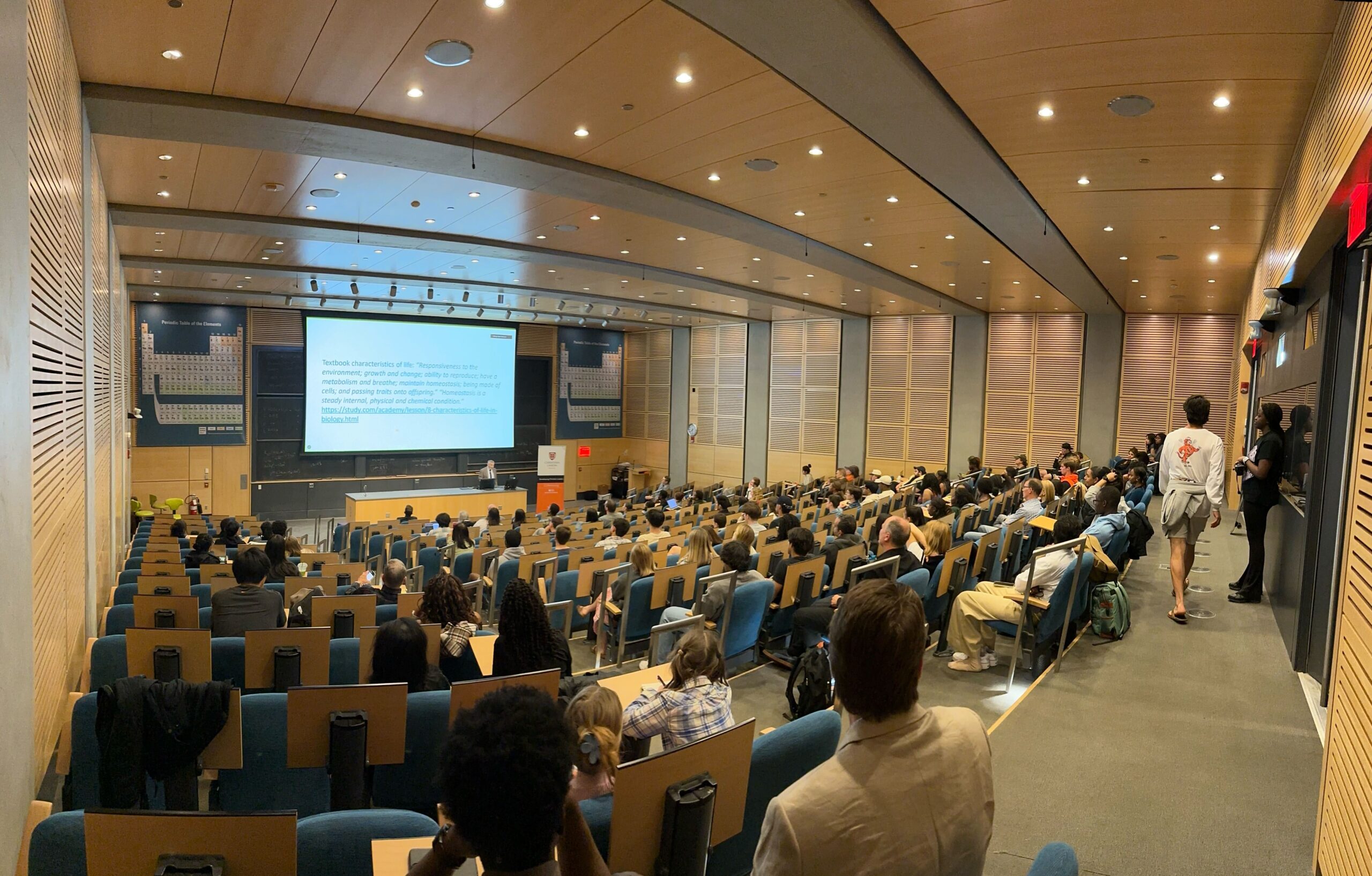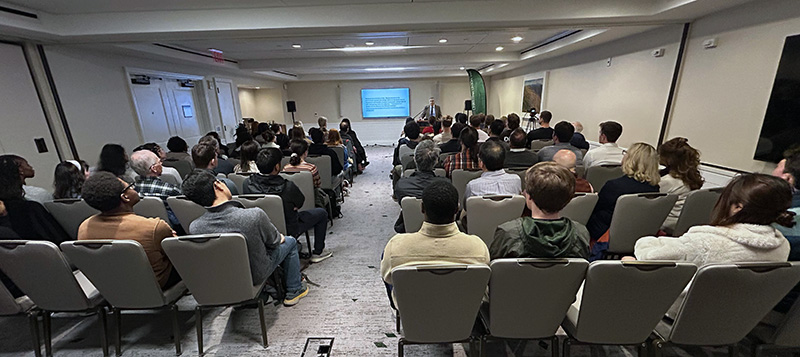A Scientific Challenge to the Proposals on Life’s Origin
By Erin conner, Writer and communications associate
“I am trying here to prevent anyone from saying the really foolish thing that people often say about Him: “I’m ready to accept Jesus as a great moral teacher, but I don’t accept His claim to be God.” That is the one thing we must not say. A man who was merely a man and said the sort of things Jesus said would not be a great moral teacher.” -C.S. Lewis, Mere Christianity
On a warm Friday evening in a packed lecture hall in one of Princeton’s prestigious science buildings, Dr. James Tour began his presentation with a picture of his family.

He explained how much he loved them, and he acknowledged the support of his wife in the audience, who had traveled with him to four universities—Harvard, Yale, Dartmouth, and Princeton—for speaking engagements that week hosted by Christian Union. In a world that uses people and values things, this man stood before his audience illustrating in a simple yet profound way that relationships are the meaning and reason for it all.
Dr. Tour is a world-renowned chemist, nanotechnologist, and professor at Rice University, known globally for his groundbreaking research in graphene, nanomedicine, and carbon nanomaterials. With over 700 research publications, 150 patents, and decades of pioneering contributions, he has been recognized as one of the foremost scientific minds of our time. During his presentation, he reviewed some of the projects that he and his team are working on in his research lab. All projects shared one trait in common: from traumatic brain injury research to more efficient ways of recycling expensive materials—all hold the potential to give life by better stewarding resources and by solving meaningful problems.
Slide by slide of his presentation, Tour, an expert chemist, poked holes in the origin of life researchers’ claims about the scientific likelihood of a cell arising from random molecular processes. Exploring the nature of molecules, Tour shared, in part, that molecules never move toward life unless an organism is acting upon them. Simply stated, molecules have no propensity to evolve toward life.
As a professor, Tour used examples from the college classroom to illustrate concepts and explained that science is very good at examining the characteristics of life but not the meaning of it. He suggested we look in the Bible for that. So after explaining some principles upon which God designed the physical world to work, Dr. Tour began to explore the principles upon which God designed the metaphysical world.
Right in the middle of a chemistry lecture, Tour put up a slide that read, “If you declare with your mouth that ‘Jesus is Lord’ and believe in your heart that God raised him from the dead, you will be saved” (Romans 10:9).
His audience of 150 people at Princeton that night, whether professors, science majors, PhD candidates, or non-science undergraduates, sat face-to-face with the truth of salvation—a significant part of the meaning of life. Tour explained the Bible can be “tested” by historians and still stand. He shared evidence of why.
The audience was given an opportunity to then ask questions. Dr. Tour answered them all, staying long past the 90 minutes assigned to this event.
Dr. Tour’s talk revealed to his audience that we all have faith. We all believe in something. In the classroom that night, spiritually speaking, Tour tore down the idol of human achievement or accomplishment. As one of the most accomplished chemists in the world, he shared the powerful, countercultural idea that scientists are just mere men and women; they have flaws, insecurities, and issues like everyone else. They have temptations to take the easy way out, to do the wrong thing, or to be motivated for the wrong reasons, just like anyone else. They are not God. The people who do research, write articles, and peer review them are flawed human beings who do not know all things, nor do they always do everything with perfect motives and methods.
The part of the question-and-answer session in which Tour problematized a culture of exaltation of scientists and asked the scientists in the room to push back on research by challenging it in meaningful ways to lead to a deeper understanding of truth was arguably one of the most powerful parts of the lecture. What if scientists are wrong about something we all believe to be true? What if people are wrong about who Jesus is? Do we have faith in mere men or faith in God?
We all are placing our faith in something. This is the reality that Tour implicitly had his audience face, not just at Princeton, but at Harvard, Yale, and Dartmouth as well. Following Tour’s presentation at Dartmouth College, a doctor who attended, shared, “I can’t recall a presentation so enlightening.”
Every spring, for over two decades, Christian Union has proclaimed the gospel in a comprehensive way: through scientists, street evangelism campaigns, and other methods of outreach because, in a culture of deception and despair, there is nothing more logical and loving than sharing the truth of God’s metaphysical love through the physical revelation of Jesus Christ.


